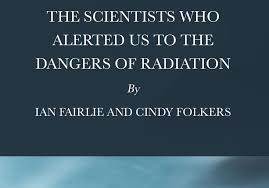Japanese rebuff Human rights council with lies!! – 24 May 2013
…There is little scientific basis for urine and blood tests, and thus we cannot accept this recommendation….
……A health survey conducted on normal healthy people is rare and, therefore, many researchers are interested in conducting research. However, we do not agree with compelling unnecessary examination….
…..UNSCEAR is now assessing the influence of the nuclear accident on the health of residents, as well as the WHO……
Mission to Japan:
comments by the State on the report of the Special Rapporteur
Human Rights Council Twenty-third session
[Extracts]
24 May 2013 English only
b) The health management survey should be provided to persons residing in all affected areas with radiation exposure higher than 1 mSv/year;

Japanese response
Already completed.
There is not a sufficient scientific basis for the claim that health management is necessary for residents who live in areas where the additional radiation dose is 1 mSv/year.
Thus, the recommendation of the Special Rapporteur, which does not have a scientific basis, is not acceptable without changing the content of the recommendation The annual background radiation dose in Japan was estimated at 2.1 mSv.
When adding an extra 1 mSv/year due to the nuclear accident, the annual radiation dose increases to 3.1 mSv/year. This value is similar to the background radiation dose of the USA (3.1 mSv) and that of many countries in Europe (2 to 7 mSv/year).
When using effective dose, the effect of the additional radiation due to the nuclear accident is equal to that of the background radiation. If residents exposed to a radiation dose of ~3mSy/year must be included as subjects of health management survey, many countries, where residents are exposed with radiation doses of ~3 mSy/year, should conduct health management surveys for radiation.
Medical and scientific bases are necessary when we discuss whether the residents who live in areas with additional 1 mSv/year should be included as subjects of health management surveys.Health management has been in place for residents in Japan regardless of the nuclear accident (e.g. once a year for students at school)
. Moreover, a person who presents a certain symptom can consult a doctor at a medical institution without restriction.
The contents of the health monitoring of residents concerning the nuclear accident has been decided on a scientific basis and an estimation of radiation exposure. In areas where the radiation dose is relatively high or where long term evacuation is expected, individual radiation doses are estimated and blood tests are carried out.
In areas where the radiation dose is relatively low and which needs to investigate health conditions other than health effects of the radiation dose, health conditions of residents can be monitored with the data of existing health check ups and medical institutions, whether residents are exposed to an additional 1 mSv of radiation dose in a year or not.
The WHO assessed that the health risk from the Fukushima nuclear accident, and suggested that the increases in the incidence of human disease attributable to the additional radiation exposure from the nuclear accident are likely to remain below detectable levels. UNSCEAR is now assessing the influence of the nuclear accident on the health of residents, as well as the WHO. The Government will continue to work on measures so that suitable support will be provided to the people who truly need the support.
(e) Avoid limiting the health checkup for children to thyroid checks and extend checkups for all possible health effects, including urine and blood tests
Japanese response
Although some misunderstandings are in fact included in this opinion, the recommendation has already been carried out. There is little scientific basis for urine and blood tests, and thus we cannot accept this recommendation.
The children’s health survey is not limited to an ultrasound examination of thyroid. Urinalysis and an electrocardiogram are carried out in the existing health checkups described in 77 (b), and also blood tests are carried out in the areas where radioactivity doses are relatively high.
Such examinations are chosen because the examination is scientifically required or its necessity is indicated. The necessity of the examination recommended by the Special Rapporteur has not been demonstrated scientifically.
A health survey conducted on normal healthy people is rare and, therefore, many researchers are interested in conducting research. However, we do not agree with compelling unnecessary examination.
Link to Source document
http://www.ohchr.org/Documents/HRBodies/HRCouncil/RegularSession/Session23/A-HRC-23-41-Add5_en.pdf
1 Comment »
Leave a comment
-
Archives
- May 2024 (203)
- April 2024 (366)
- March 2024 (335)
- February 2024 (345)
- January 2024 (375)
- December 2023 (333)
- November 2023 (342)
- October 2023 (366)
- September 2023 (353)
- August 2023 (356)
- July 2023 (362)
- June 2023 (324)
-
Categories
- 1
- 1 NUCLEAR ISSUES
- business and costs
- climate change
- culture and arts
- ENERGY
- environment
- health
- history
- indigenous issues
- Legal
- marketing of nuclear
- media
- opposition to nuclear
- PERSONAL STORIES
- politics
- politics international
- Religion and ethics
- safety
- secrets,lies and civil liberties
- spinbuster
- technology
- Uranium
- wastes
- weapons and war
- Women
- 2 WORLD
- ACTION
- AFRICA
- Atrocities
- AUSTRALIA
- Christina's notes
- Christina's themes
- culture and arts
- Fuk 2022
- Fuk 2023
- Fukushima 2017
- Fukushima 2018
- fukushima 2019
- Fukushima 2020
- Fukushima 2021
- general
- global warming
- Humour (God we need it)
- Nuclear
- RARE EARTHS
- Reference
- resources – print
- Resources -audiovicual
- World
- World Nuclear
- YouTube
-
RSS
Entries RSS
Comments RSS



[…] *CRP, WHO and UNSCEAR and their effect on the Fukushima children https://nuclear-news.net/2013/05/31/icrp-who-and-unscear-and-their-effect-on-the-fukushima-children/ *Japanese rebuff Human rights council with lies!! – 24 May 2013 https://nuclear-news.net/2013/05/28/japanese-rebuff-human-rights-council-with-lies-24-may-2013/ […]
Pingback by URGENT PETITION: For Protecting Human Right of Fukushima Disaster Victims « nuclear-news | June 2, 2013 |